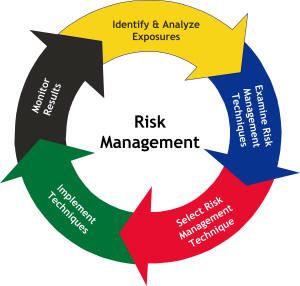Compliance
| Site: | Rotary District 9675 My Learning |
| Course: | Club management |
| Book: | Compliance |
| Printed by: | Guest user |
| Date: | Monday, 23 February 2026, 5:25 AM |
Description
Compliance is important to keep members safe. Promoting Rotary is not just about branding guidelines, although they are important and there are some great resources in this topic to help you, it is also about the Rotary brand and what that means to the greater community.
1. Overview
Compliance for a Rotary Club is important to protect members. It may seem daunting, however, once you have the correct processes in place and regularly update them, the process is fairly straight forward. Hopefully this resource will help you to further develop your club in these areas:
- Ensuring your Club has an up to date Constitution and Bylaws that are registered with the Department of Fair Trading
- Following Child protection protection policy and procedures
- Risk assessment
- Insurance
- Storage of records
- Protection of members' data
2. Constitution and bylaws
Each Rotary Club must have an up to date Constitution that is registered with the Department of Fair Trading. A club Bylaws must also be up to date and align to the Constitution.
Recently District 9675 updated the generic Club Constitution that was developed in 2017 so that it was inline with the changes that had occurred to the Rotary International Constitution.
All clubs were asked to update these changes in their Constitution and upload the changes to the Department of Fair Trading (if they had updated their Constitution in 2017). If Clubs had not updated their Constitution in 2017 then Clubs need to lodge the new Constitution ie in total.
Updated Constitution (September 2023). Link to the Department of Fair Trading Form 6 which must be completed and upload with the cost of $50.
Current generic Bylaws (September 2023)
You may also need to consult the Rotary International Manual of Procedures
3. Child protection
Child protection is an important aspect of compliance and there are a number of steps to ensure your are compliant:
- have a documented Child Protection Policy
- any members who have contact with children should have a Volunteer Working with Children Check
- a secure record should be maintained of who has current Working with Children Clearance. These records are confidential and should not be published.
More information: Rotary Youth Protection Guide
If you have any questions please contact Genevieve Turner, Compliance Office, Office of the Children's Guardian. Compliance@kidsguardian.nsw.edu.au
4. Risk assessment
 Risk assessment is a term used to describe the overall process where you identify hazards and risk factors that have the potential to cause harm (hazard identification). Analyse and evaluate the risk associated with that hazard (risk analysis and risk evaluation) Accessed on 17 April 2020.
Risk assessment is a term used to describe the overall process where you identify hazards and risk factors that have the potential to cause harm (hazard identification). Analyse and evaluate the risk associated with that hazard (risk analysis and risk evaluation) Accessed on 17 April 2020.
Undertaking risk assessment for planned activities is good practice and protects members. For example, if you are coordinating a BBQ then undertake a risk assessment, make members aware of the risks you identify and then document how you will manage the risk. This only needs to be done once and a record kept for the next BBQ. The same applies to other activities your club may undertake. Sample risk assessment form.
There are also some great resources in the Rotary Handbook on Risk Management and Insurance
5. Insurance
Ensuring your members are covered by insurance when undertaking Club activities is important.
Listen to Joanne Glaser, District 9675 Insurance Officer, talk about the importance of insurance for your Club.
The following information may be useful:
- Joanne Glaser's PowerPoint Presentation on Insurance
- Insurance guide for Rotary Clubs
- Liability Claim Form
- Machinery Breakdown Claim Form
- Property Claim Form
- Stallholders Liability
- Rotary Sexual Abuse Incident Report
- Rotary Handbook on Risk Management and Insurance
- Rotary International Travel Insurance Form
6. Storage of records
 Your Secretary and Public officer are responsible for keeping your records. The Secretary for the club records and Public Officer for legal documents.
Your Secretary and Public officer are responsible for keeping your records. The Secretary for the club records and Public Officer for legal documents.
There are several types of records:
- Membership details
- Club officer assignments
- Club records such as:
- The Clubs Constitution and Bylaws
- Club agreements and contacts
- Financial auditing reports
- Board minutes.
Where do they need to be kept?
Membership details and club officer assignments should be kept up to date in the District Website (ClubRunner). This information is then automatically moved to My Rotary. This means that only one set of records needs to be maintained. This information needs to be kept up to date by the Club Secretary.
Club files, a copy of the Constitution and ByLaws, club agreements and contracts should be kept in the Club Administration System (this may be an electronic system or paper-based) and kept for a minimum of 5 years.
For more detailed information go to the My Rotary Learning Centre and search for the course 'Managing Club and Member Information'.
7. Protection of members personal data
Each club should adopt a privacy policy that describes how the club handles the personal data it collects, stores, transmits, shares, disposes of, or otherwise uses. Personal data includes a person’s name, postal or email address, telephone number, gender, financial data, or other sensitive information that might identify him or her. To learn more, consult 'Protecting Personal Data', an online course found on Rotary’s Learning Centre accessed through My Rotary. Please note: you need to sign in to the Learning Centre.
Although Rotary does not require clubs to have a privacy policy or to use this template, if your club has a privacy policy:
- Club members, donors, and other club constituents will feel more confident about supporting your club.
- It may help your club comply with local privacy laws.
- It may help your club be more consistent when handling personal data and records.
8. Charitable fundraining guidelines
If you conduct a fundraising appeal for charitable purposes in NSW, there are laws you must follow. So it is important to be aware that charitable fundraisers may need to comply with obligations under other laws, such as federal taxation law.
To find out more and if required the form